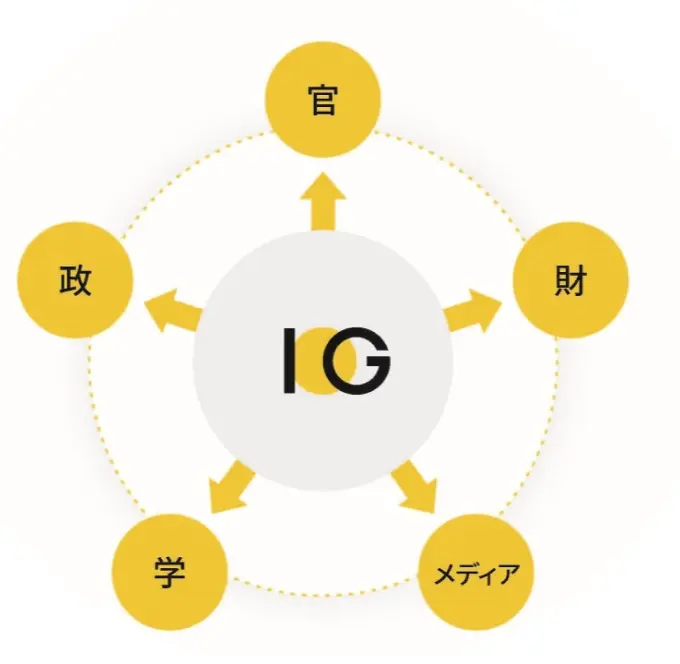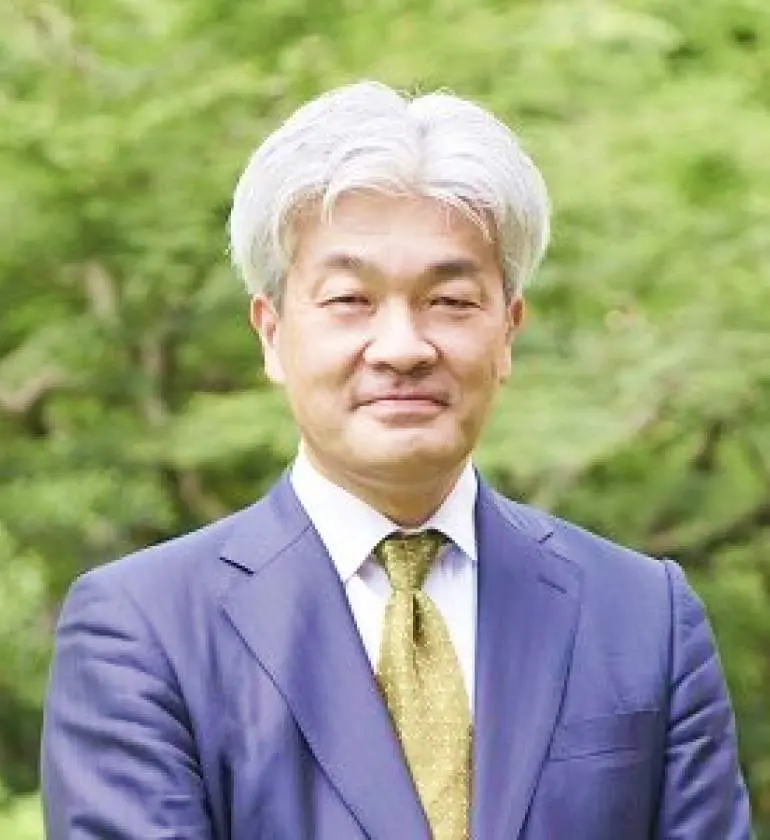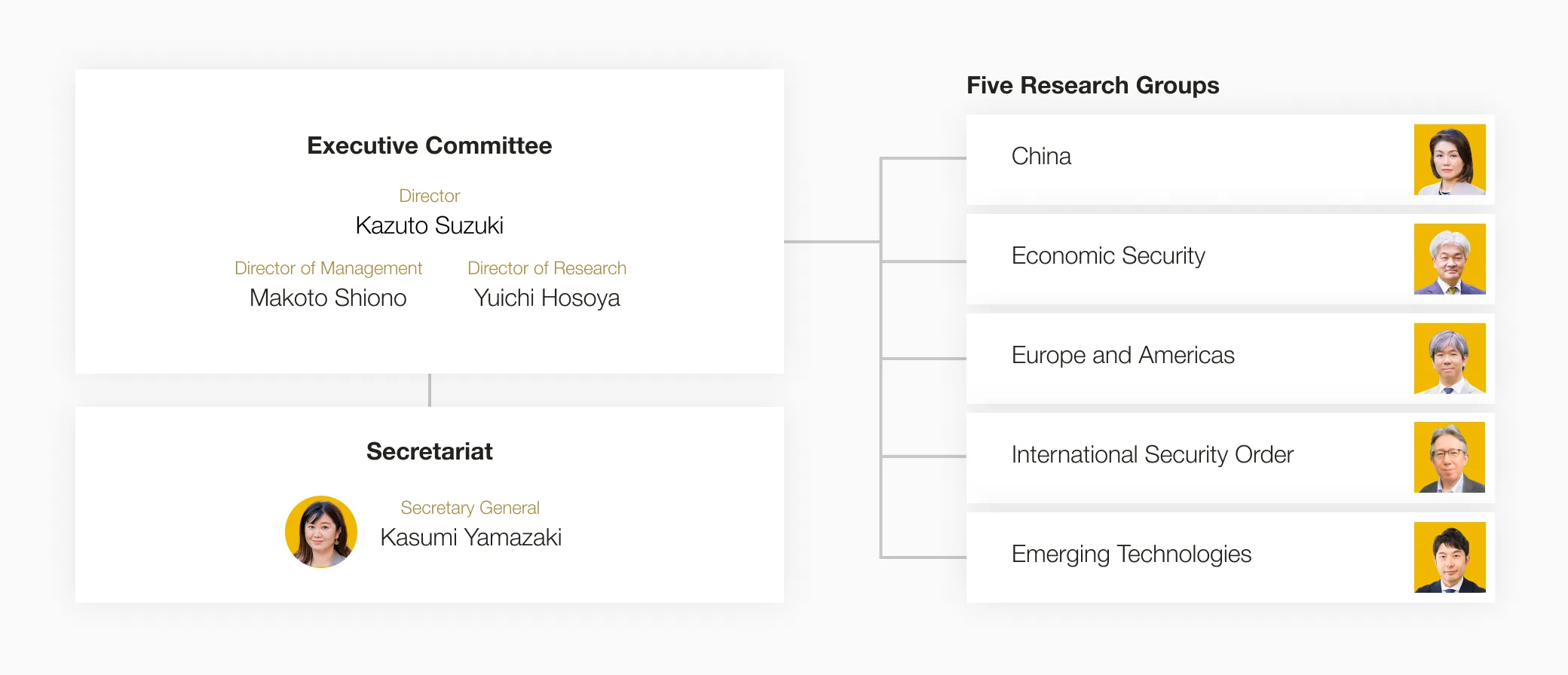About IOG
As a private, independent think tank, the IOG aspires to make significant
global impact and become a hub for intellectual exchange in the Asia-Pacific
region.
About Geoeconomics
Message from IOG

The Russia-Ukraine War and Western economic sanctions on Russia show no signs of ending. In the same year, Japan passed the Economic Security Promotion Bill.
The Institute of Geoeconomics (IOG) was established in 2022, a year that marked a turning point from the post-Cold War era of globalization to the era of ‘Geoeconomics’, where the strategies of international economics and geopolitics have become inseparable.
How should companies gather information to strike a balance between risks and costs? What can Japan do to contribute to a free, open, and sustainable future?
IOG aspires to be a think tank that communicates globally from the Asia-Pacific region. While inheriting expertise in international relations, regional studies, and geopolitics from the Asia Pacific Initiative, the IOG will continue to deepen connections between bureaucrats, politicians, and businesses.
About IOG
To achieve these missions above, we will:
Features 01The Core Role in the Geoeconomics Intelligence Community

By gathering the networks that the Asia Pacific Initiative (API) and IOG have built with policymakers, politicians, businesses and foreign think tanks, we will
continue to serve as a hub for the high-level geoeconomics and economic
security community.
As a private, independent think tank, IOG will foster intelligent interactions and
cultivate business talents in geoeconomics. IOG will also continue to provide
sophisticated information for policymaking, policy implementation, and
corporate activities.
Features 02A ‘Hub for Intellectual Exchange’ Representing the Asia-Pacific Region
The IOG will be the center of geoeconomics and economic security networks, connecting seven hubs across the Asia-Pacific
region to bring together policymakers, politicians, and businesses.
IOG will work on networking among bureaucrats, politicians, and businesses in to the areas of geoeconomics and economic
security, organize international symposiums, workshops, and field trips, promote joint research on geoeconomics and economic security, and dispatch young researchers who aspire to be the future leaders in geoeconomics.
Message from Director Suzuki

“In Japan, until recently, the worlds of politics and economy, security and private activities, and the public and private sectors existed in a self-sufficient manner. Each was treated autonomously despite some interference. In today’s world, these distinctions have become meaningless, and many events can only be understood within the framework of ’geoeconomics,’ a fusion of geopolitics and economy. There are many issues that geoeconomics must deal with, such as economic security, sanctions, and technological hegemony. At IOG, we plan to address a wide range of geoeconomic themes, starting with economic security and China, and disseminate our findings to the international community. We aim to grow into a think tank representing Asia and the Pacific. We appreciate your continued support.”
Management Structure

Five Research Groups
China is actively working to enhance its global influence to match its self-perceived status as a great power. Central to this effort is its economic activity, which China aims to leverage into political power. This raises critical questions: How will China transform its economic might into political leverage? And what impact will China's strategy toward the U.S.—and its broader international approach—have on Japan and other neighboring countries? The China Group explores these questions by analyzing China's national strategy—particularly its economic security policies—and assessing their broader implications for the international community, drawing on global China studies and research for our insights.
Research of China GroupEconomic security lies at the heart of geoeconomics research. To achieve strategic autonomy, it is vital to not only strengthen supply chains but also to delve into the complexities of investment regulations, technology outflows, and shifts in the international political economy, assessing their economic impacts. Developing technology and strategic industrial policies that enhance Japan's strategic indispensability is another key area of focus in this matter. To bring these analyses to life, the Economic Security Group studies supply chains of critical commodities and tracks trends in the economic security strategies and industrial policies of various countries.
Research of Economic Security GroupHow do Western countries preserve and advance an international order grounded in democratic principles and rules? The Europe and Americas Group examines the political and economic trends across Western Europe, Central and Eastern Europe, North America, and Latin America, focusing on the free and open international order led by Western countries. Our current projects include studying the Liberal International Order (LIO), assessing the impact of domestic political changes on the international order in 2024—often referred to as "the year of elections"—and analyzing the connections between democratic backsliding and disinformation.
Research of The Europe and Americas GroupThe international security landscape has been shifting rapidly due to the deteriorating security environment around Japan, the strategic rivalry between the United States and China, and the impacts of the wars in Ukraine and Gaza. In this evolving context, understanding security dynamics is crucial for analyzing not only international politics but also global economy and corporate behavior. The International Security Order Group researches and reports on developments related to security, military, defense, and strategy both in Japan and worldwide. The group particularly emphasizes the defense industry, where security and economics converge, and provides research and policy recommendations concerning Japan's security policy.
Research of International Security Order GroupAdvanced technologies now bridge military and civilian applications, significantly shaping a nation's power from military, economic, and social perspectives. As the actors involved in developing and managing these technologies become more diverse, they create complex dynamics in contemporary international relations. The Emerging Technologies Group concentrates on cutting-edge fields such as AI and space technology, examining the interplay between technology, the state, and the private sector, and exploring how this relationship is influencing the evolving international order.
Research of Emerging Technologies GroupInitiators
Outline
| Operating Entity: | The International House of Japan |
|---|---|
| IOG Executive Committee | Dr. Kazuto Suzuki, Director of IOG (Professor, Graduate School of Public Policy, The University of Tokyo) |
| Office | 5-11-16 Roppongi, Minato-ku, Tokyo, 106-0032 |
Institute of Geoeconomics
As a private, independent think tank,
the IOG aspires to make significant global impact and become a hub for intellectual exchange in the Asia-Pacific region.
Follow Us


